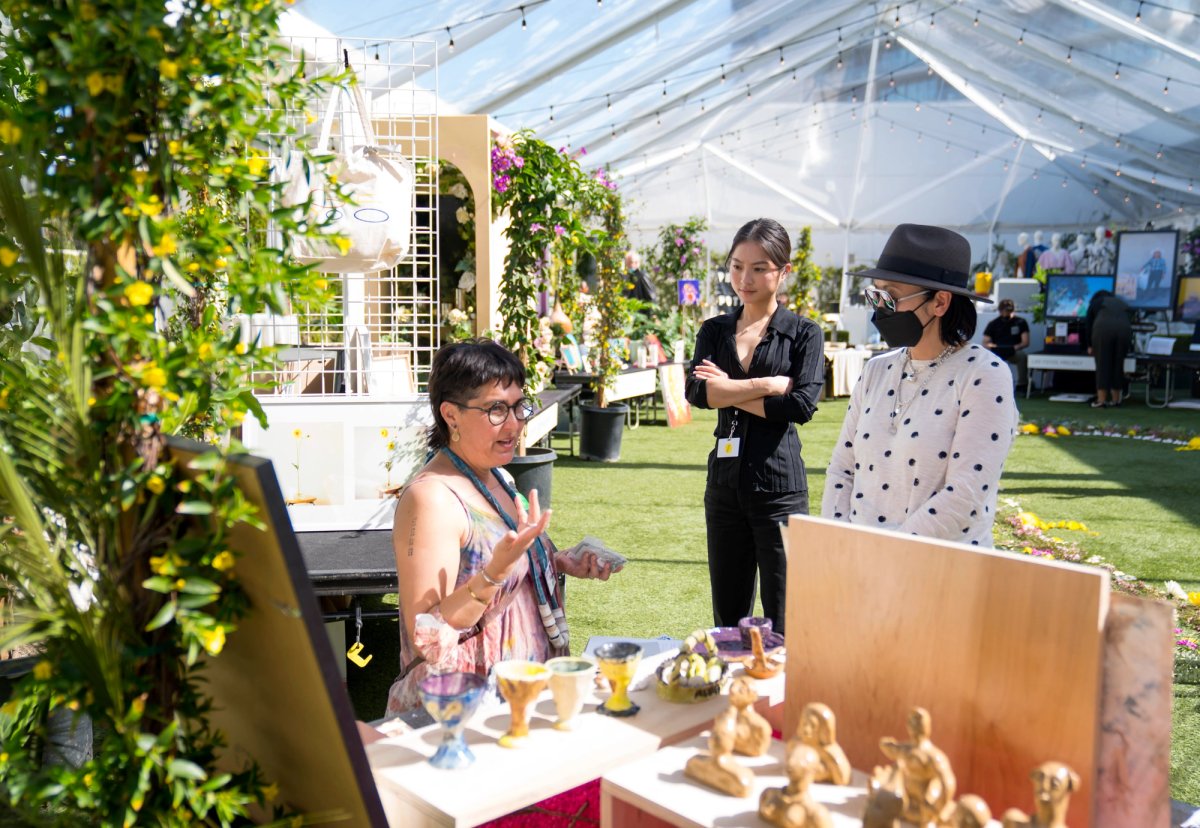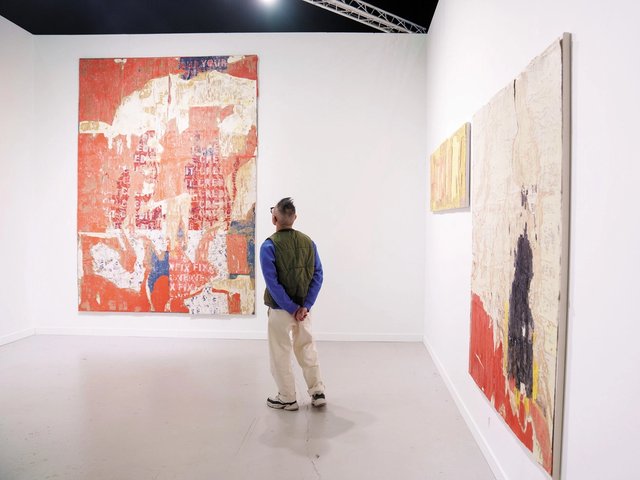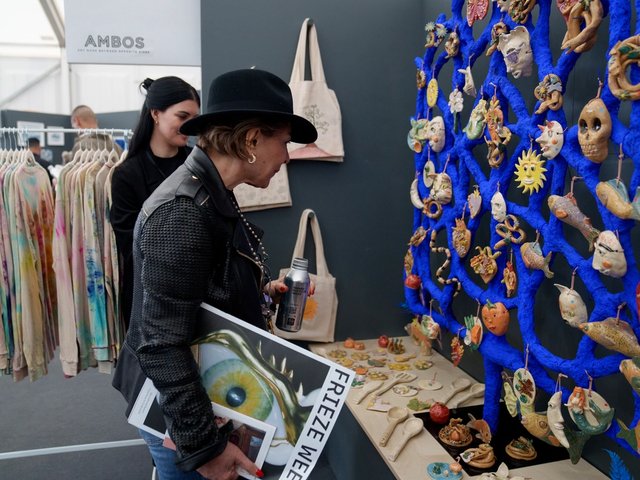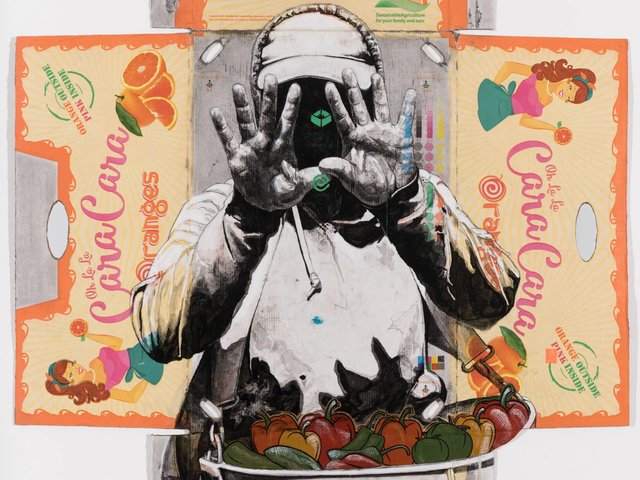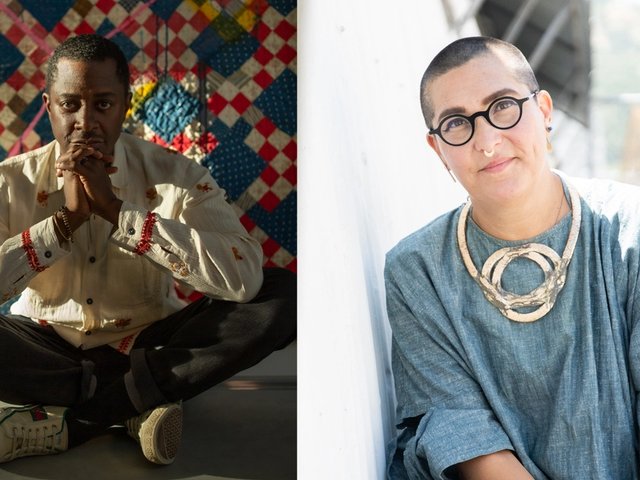Ahead of Frieze this year, the director Christine Messineo approached Tanya Aguiñiga, the Los Angeles artist and activist, about creating a project to coincide with the fair. “I had the idea to search for different Bipoc, artist-led projects across different disciplines,” Aguiñiga says. “I wanted to organise something that was really expansive in the way that we think about art, and the ways that art can address the most pressing issues in our city.”
With the support of Santa Barbara’s Carolyn Glasoe Bailey Foundation, Aguiñiga created the BIPOC Exchange, a community-centric space in a garden adjacent to Frieze’s venue, the Beverly Hilton Hotel. There, for the duration of the fair, ten organisations are raising money for, and awareness of, various artistic pursuits throughout Los Angeles. For each, art might provide a means of financial support: the People’s Pottery Project, for example, puts the proceeds from selling ceramics toward job training and placements for formerly incarcerated women, trans and non-binary people.
Art can also provide the essential resource of community: the Urban Voices Project, a choir for the unhoused residents of the city's Skid Row, describes music as the “bridge” with which they connect communities with health and social services. Live performances are scheduled throughout the fair.
Aguiñiga brought her own organisation, AMBOS (Art Made Between Opposite Sides), which, through a ceramics workshop, provides both a therapeutic outlet and platform of visibility for queer migrants and other refugees all across the US-Mexico border.
Aguiñiga, who was born in San Diego and raised in Tijuana, began her activism in 1997 with artistic activations and mutual aid programmes along the San Diego-Tijuana border. Describing the BIPOC Exchange as “a really massive sampling of what communities make up Los Angeles”, she highlights the similarities between the work she was doing then and what is happening at the fair.
“I wanted to show that all our communities are really linked together,” she says, “and all people deserve to be treated like any other.”


